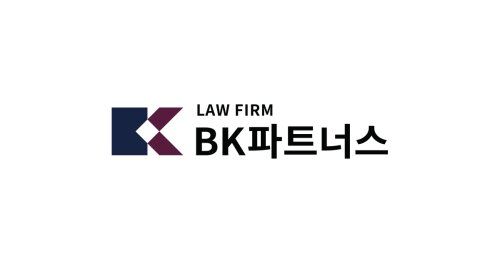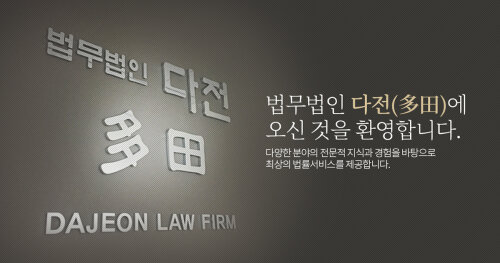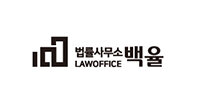Best Domestic Violence Lawyers in South Korea
Share your needs with us, get contacted by law firms.
Free. Takes 2 min.
Free Guide to Hiring a Family Lawyer
Or refine your search by selecting a city:
List of the best lawyers in South Korea
About Domestic Violence Law in South Korea
Domestic violence in South Korea has been recognized as a serious social issue, prompting the government to enact various legal measures to protect victims and hold perpetrators accountable. The laws in this area aim to provide quick and effective relief to victims, prevent further abuse, and offer rehabilitation for offenders. Despite progress, cultural stigmas and underreporting still pose challenges, making it vital for victims to understand their rights and available resources.
Why You May Need a Lawyer
Engaging a lawyer can be crucial in domestic violence cases for several reasons. Victims may need legal assistance to file for protective orders, navigate the criminal justice system, or handle divorce and custody battles influenced by abuse allegations. Lawyers can also help accused individuals defend against charges, ensuring fair treatment under the law. Professional legal advice is essential in understanding one's rights and options, advocating effectively in court, and negotiating settlements or plea deals.
Local Laws Overview
The special laws addressing domestic violence in South Korea include the Act on the Punishment of Domestic Violence and the Act on the Prevention of Domestic Violence. Key aspects of these laws include:
- Provision for protection orders that can bar perpetrators from contacting or approaching victims.
- Criminal penalties for various acts of domestic violence, including physical, psychological, and sexual abuse.
- Mediation as a potential process for resolving cases, although this approach is often criticized.
- Support services mandated by law, such as counseling, temporary housing, and financial assistance for victims.
Frequently Asked Questions
What is considered domestic violence under South Korean law?
Domestic violence includes any act that harms a family member's body, health, mental state, or otherwise inflicts substantial damage. This encompasses physical, emotional, and sexual abuse.
Can I get a restraining order against my abuser?
Yes, victims of domestic violence can petition for a protection order, which can restrict the perpetrator's contact and proximity to the victim.
What are the penalties for domestic violence offenders?
Penalties may range from fines and restraining orders to imprisonment, depending on the severity of the offense and whether it is a repeat occurrence.
How do cultural attitudes affect domestic violence reporting?
Cultural stigmas can discourage victims from reporting abuse, leading to underreporting and reluctance to pursue legal action. Efforts are ongoing to change these perceptions and support victims in coming forward.
What support services are available for victims?
Support services include counseling, temporary shelters, legal aid, and financial assistance, aiming to help victims recover and reintegrate into society.
Can a marriage be annulled due to domestic violence?
While annulment is rare, victims may seek a divorce on the grounds of domestic violence, with courts considering factors like abuse in custody and property settlements.
Is mediation a part of domestic violence cases?
Mediation can be used in some cases, but it is criticized for potentially minimizing the seriousness of abuse and pressuring victims into unfavorable settlements.
Can foreign nationals in Korea seek help for domestic violence?
Yes, all residents, including foreign nationals, are entitled to legal protection and can access the same support services as Korean citizens.
What should I do if I witness domestic violence?
You should contact local authorities immediately if you witness domestic violence, as police intervention can prevent escalation and provide victims with necessary support.
How can abusers receive help to change their behavior?
Court-mandated counseling and rehabilitation programs are available for offenders to address abusive behavior and work toward change.
Additional Resources
There are several governmental and non-governmental organizations providing assistance and resources related to domestic violence in South Korea:
- Ministry of Gender Equality and Family: Offers various programs and protection services.
- Korea Women's Hot Line (KWHL): A key resource for support and counseling.
- Korean National Police Agency: Responds to domestic violence emergencies and enforces protection orders.
Next Steps
If you need legal assistance for domestic violence in South Korea, consider the following steps:
- Contact a local attorney specializing in domestic violence cases for legal advice and representation.
- Reach out to support organizations for emotional counseling and temporary housing if necessary.
- File a police report or seek a protection order if immediate safety is a concern.
- Gather and document evidence of abuse, including photographs, medical records, or witness statements, to bolster your case.
These steps can provide both immediate protection and long-term resolution for individuals affected by domestic violence.
Lawzana helps you find the best lawyers and law firms in South Korea through a curated and pre-screened list of qualified legal professionals. Our platform offers rankings and detailed profiles of attorneys and law firms, allowing you to compare based on practice areas, including Domestic Violence, experience, and client feedback.
Each profile includes a description of the firm's areas of practice, client reviews, team members and partners, year of establishment, spoken languages, office locations, contact information, social media presence, and any published articles or resources. Most firms on our platform speak English and are experienced in both local and international legal matters.
Get a quote from top-rated law firms in South Korea — quickly, securely, and without unnecessary hassle.
Disclaimer:
The information provided on this page is for general informational purposes only and does not constitute legal advice. While we strive to ensure the accuracy and relevance of the content, legal information may change over time, and interpretations of the law can vary. You should always consult with a qualified legal professional for advice specific to your situation.
We disclaim all liability for actions taken or not taken based on the content of this page. If you believe any information is incorrect or outdated, please contact us, and we will review and update it where appropriate.
Browse domestic violence law firms by city in South Korea
Refine your search by selecting a city.

















